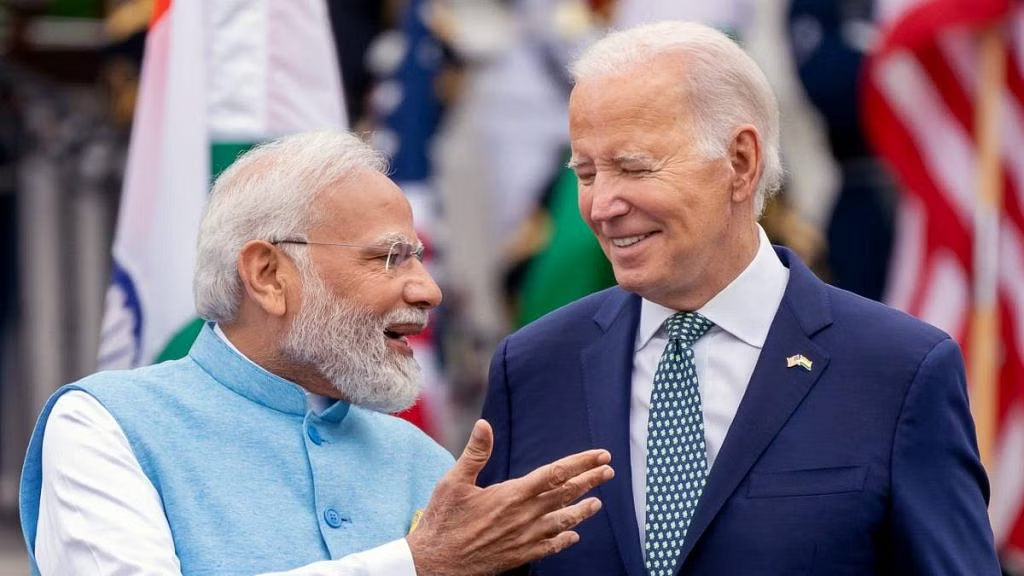The upcoming meeting between Prime Minister Modi and President Biden holds great significance, particularly as it takes place just ahead of the US elections. Here’s why:
- Economic Ties: India-US trade reached a record high of $191 billion in 2023, making the US India’s largest trading partner. India is keen to expand this with new investments, especially in key sectors such as semiconductors, artificial intelligence, and clean energy. This aligns with India’s “Make in India” initiative, aimed at enhancing domestic manufacturing and technological self-reliance. Biden, on the other hand, seeks to strengthen supply chain resilience in critical sectors like pharmaceuticals and technology, both of which India plays a major role in.
- Defence and Strategic Collaboration: India and the US have been steadily strengthening their defense ties, which is vital for counterbalancing China’s growing influence. The two countries signed the Initiative on Critical and Emerging Technologies (iCET) earlier, focusing on joint defense manufacturing, cybersecurity, and space technology. India’s purchase of MQ-9B drones and the landmark deal with GE to produce fighter jet engines in India are significant developments that will likely be discussed during this meeting.
- Geopolitical Significance – The Quad: PM Modi’s visit coincides with the fourth Quad Summit, where leaders of the US, India, Japan, and Australia are set to review progress and chart future goals. The Quad is a critical platform for ensuring stability and security in the Indo-Pacific, an area where China’s aggressive stance has been of concern. India’s growing influence in this region, combined with the US’s strategic interest, makes this meeting crucial for maintaining a united front against China’s geopolitical ambitions.
- Technology and Innovation: India and the US have strong mutual interests in cutting-edge technologies. During Modi’s visit, discussions with CEOs from the AI, semiconductor, and quantum computing sectors will aim to foster deeper collaboration. With both countries striving to maintain technological leadership in the global economy, this meeting could result in major investments and partnerships.
- Climate and Energy Cooperation: Clean energy and climate cooperation remain priority areas, especially given Biden’s focus on green energy and Modi’s ambitious renewable energy goals. Both leaders are expected to review progress under the US-India Climate and Clean Energy Agenda 2030 Partnership, which includes commitments to decarbonization, clean hydrogen production, and renewable energy expansion.
- Domestic Impact for Both Leaders: For Biden, strengthening ties with India is a key foreign policy achievement, one that may bolster his standing in upcoming elections by showcasing his leadership in countering China and enhancing US manufacturing. For Modi, this visit is an opportunity to demonstrate India’s growing global influence and economic clout, which could resonate with domestic and diaspora audiences alike.
In summary, this meeting is pivotal not just because of its timing before US elections, but because it reinforces long-standing partnerships in defense, technology, and geopolitics that are critical to both nations’ strategic goals. These areas of cooperation are expected to continue, irrespective of the election outcome.





